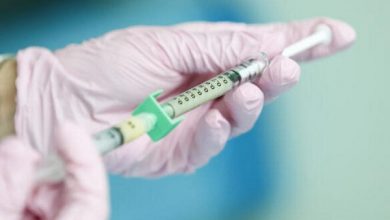HSE advice on ‘potentially serious’ tummy bug in children

The HSE-Health Protection Surveillance Centre (HPSC) is providing advice to parents about preventing cryptosporidiosis following a large increase in a potentially serious tummy bug in children over the last few weeks.
“Since the beginning of March, the number of cases of cryptosporidiosis has more than doubled in comparison to the average rates, especially in small children aged 1 to 4 years of age, says HPSC specialist in Public Health Medicine, Dr Paul McKeown.
“When children spend time outdoors and in particular on farms, they are more likely to pick up this bug and it is important they wash their hands regularly with soap under warm running water.”
Factsheet to assist parents – Hspc.ie
Hands should always be washed:
- After using the toilet
- Before eating
- Before preparing food
- After playing, working or being outside (especially on the farm)
- After touching dirty outdoor clothes or boots
- After touching pets, livestock and other animals
It is important to know that:
- Alcohol hand gel will not kill the cryptosporidiosis bug – only soap and warm water will
- Children should not eat food (including sweets and treats) out of doors especially on the farm, or in the open countryside, unless their hands have been cleaned
- Raw (unpasteurised) milk can be contaminated with many harmful infectious diseases including cryptosporidiosis. Young children and pregnant women are at most risk.
- If you have a private well, you should ensure that the water from it is safe. The EPA has advice on protecting your well
Symptoms:
Symptoms of cryptosporidiosis generally begin about a week after swallowing the bug, but can start after only a couple of days. The symptoms last about one week (but can last longer). People who are immunocompromised (whose body’s defence system is weak due to a medical condition or because of medication) can have severe symptoms if they catch cryptosporidiosis.
The most common symptom of cryptosporidiosis is watery diarrhoea. Other symptoms include:
- Stomach cramps or pain
- A temperature
- Nausea
- Vomiting
Some people with cryptosporidiosis will not get sick at all.
“Cryptosporidiosis is spread when the bug passes from the person or animal in the stools or manure, and anything contaminated by the stools or manure (hands, touch surfaces, handles, food, water and outdoor surfaces) can lead to a person becoming infected,” added Dr McKeown.




